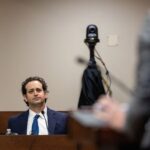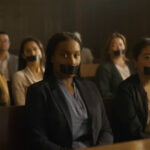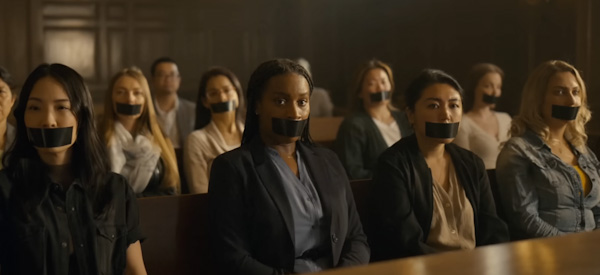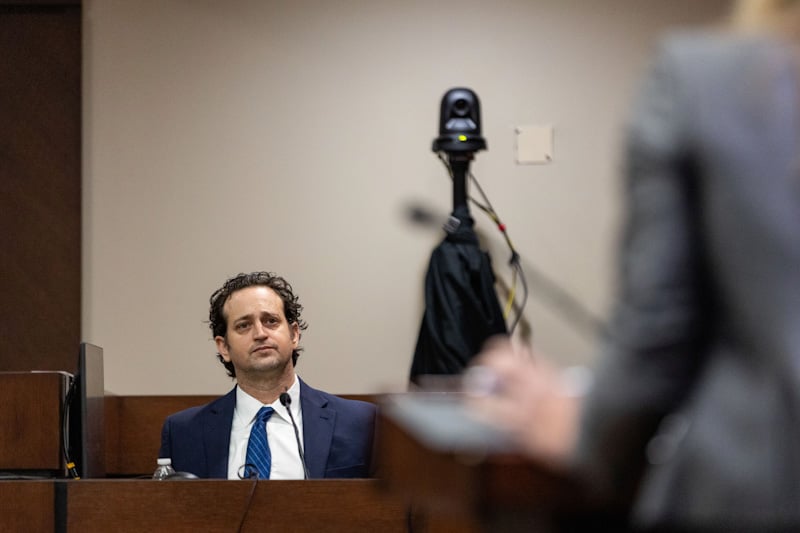School shootings by youths have risen frequently over the last quarter century, and the past five years reflect a substantially higher number of incidents, according to a recent article published by the American Academy of Pediatrics.
It seems challenging to find an avenue that might take us back to a simpler time, when the horrors of school shootings were the exception instead of the norm. Besides charging the shooters, a somewhat recent approach has been charging their parents as well.
Earlier in the month, Colin Gray, whose 14-year-old son is accused of shooting four people at a Georgia high school, was charged with involuntary manslaughter and second-degree murder. The government claims the deaths of two students and two teachers resulted from the son’s actions and the father allowing him to have the gun.
His son was charged with four counts of murder. As a lawyer and a writer, I always try to refrain from naming minors unless and until they are convicted.
Questions about the merits of charging a parent for a child’s crime, and whether that may be a valid tool for preemptively fighting school shootings, led me to Fox’s Accused, a gripping crime series set to start its second season in October. Each stand-alone installment is a fictional account created to craft a thought-provoking look at various forms of criminal liability.
The anthology series is based on a 2010 BBC show of the same name. I’ve been aware of the series for some time based on multiple reader recommendations. Nevertheless, this is my first opportunity to review an episode. The first installment immediately caught my attention, as it echoes Colin Gray’s situation.
‘Scott’s Story’
The episode was incredibly well-produced. The cinematography is top-notch, and the acting is very well done. If I came across Accused while scanning cable channels, I would have thought it was a drama series or a made-for-TV movie.
We quickly learn that soon-to-be-shooter Devin Harmon’s parents are aware their son threatened the life of another student due to bullying. His mother decides to pull him out of school instead of participating in assessments as part of his expulsion from school.
His father, Dr. Scott Harmon, a brain surgeon, seems more concerned with his son’s underlying issues, while his mother implores that her husband give the son some “space.”
The audience watches as the father views old family home movies. In one, his daughter asks why Devin never listens and foreshadows that “maybe he’s broken …” Other recorded instances show Devin keeping animals in boxes and hurting other children.
It becomes clear the father is aware his son has issues. He knows his boy lacks empathy, and he goes as far as to tell his wife that he thinks Devin is “dangerous.”
The episode alternates between the criminal process Harmon endures and the life experiences that led to the underlying knowledge upon which his criminal charges are partly based. Ultimately, the father finds himself stuck between the unconditional love of a parent and the fear that someone he cares so deeply for could cause so much pain to others.
The viewer is left asking, “When is it too early to intervene and to what extent?”
“Scott’s Story” was enjoyable from a dramatic and visual perspective. However, it was lacking in legal realism regarding the courtroom scenes, which all center on a preliminary hearing in the father’s criminal case. Either the production team didn’t seek the advice of an actual litigator, or they favored the emotional tug over the thrust of authenticity.
Nevertheless, that can’t detract from the cases the narrative mimics.
Other instances
Earlier this year, James and Jennifer Crumbley were both found guilty of involuntary manslaughter after their 15-year-old son, Ethan, was found guilty of killing four students in Michigan.
What separates the Crumbleys’ situation from the majority of school-shooter parents, though, is that they actually bought their son the pistol he used to murder the other students. Likewise, Colin Gray is alleged to have bought his son the AR-15-style rifle he allegedly used.
However, such a clear connection to the killing likely won’t be apparent in most parental liability cases. Indeed, Adam Winkler, a constitutional law professor at the University of California at Los Angeles, told Time magazine that it’s very rare for parents to be held accountable when their children have access to firearms and do harm. With that in mind, and in light of the recent charges against Gray, will we see an influx of charges levied against the parents of school shooters?
All this brings me back to my initial question: Is charging parents for the school shooting deaths caused by their children even a valid tool in preemptively fighting these horrors?
Sadly, I don’t think it is.
Let’s consider the context surrounding parental liability cases. The prosecution’s theory in these types of matters seems to be that the parent either knew or should have known their child was a threat to themselves or others and that the parent did or didn’t do something that assisted the shooter in ultimately carrying out their scheme.
The Associated Press reported that the prosecutor in Gray’s case said he’s “not trying to send a message … [he’s] just trying to use the tools in [his] arsenal to prosecute people for the crimes they commit.”
Whether true or not, one can see how charging parents for their children’s violence could be used as a tool to try and deter the ever-growing trend of school shootings. After all, if there was an easy alternative fix, we would have already discovered it. We haven’t, so maybe it’s necessary to try a new option, namely parental liability charges.
Some have argued that outlawing or further restricting assault rifles will lower the occurrence rate, but statistics show that handguns are most prevalent in mass shootings. Totally outlawing private possession of firearms isn’t a viable option, so society has to pursue some avenue that might protect our children.
I’m not the only person who believes that charging parents won’t stop the violence. Still, research shows that the handguns used in school shootings are frequently stolen from family members. Perhaps charges based on parental liability will force parents to take better care securing their firearms in the home.
But, as “Scott’s Story” reiterates, many parents are in denial regarding their children’s potential for deadly activity, and even those who are aware fail to take the proper steps to stop the danger.
At the end of the day, even though I can’t entirely agree with the notion that these types of cases will deter shootings, I don’t have a better option to suggest. So, if there is a valid legal theory to push that could potentially save more children, it’s worth a try.
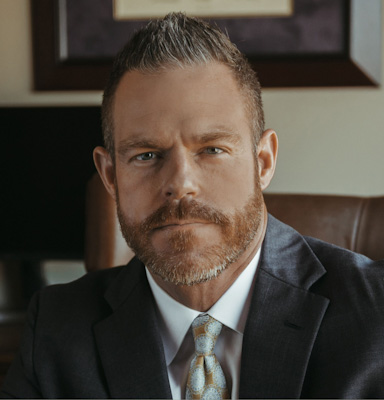
Adam Banner
Adam R. Banner is the founder and lead attorney of the Oklahoma Legal Group, a criminal defense law firm in Oklahoma City. His practice focuses solely on state and federal criminal defense. He represents the accused against allegations of sex crimes, violent crimes, drug crimes and white-collar crimes.
The study of law isn’t for everyone, yet its practice and procedure seem to permeate pop culture at an increasing rate. This column is about the intersection of law and pop culture in an attempt to separate the real from the ridiculous.
This column reflects the opinions of the author and not necessarily the views of the ABA Journal—or the American Bar Association.
#Teen #shooters #parents #responsibilities #examined #Foxs #Accused


